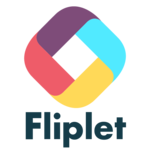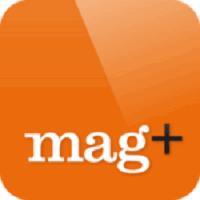Description

Fliplet

Frontegg
Comprehensive Overview: Fliplet vs Frontegg
Fliplet, Frontegg, and Shipbook are distinct platforms catering to various needs within the technology and development space. Here’s a comprehensive overview of each:
Fliplet
a) Primary Functions and Target Markets:
- Primary Functions: Fliplet is a platform designed for creating mobile and web applications without extensive coding. It provides a suite of tools for developing, organizing, and deploying applications, aiming to empower businesses to create functional applications rapidly.
- Target Markets: Fliplet primarily targets businesses and enterprises looking to streamline their app development processes. This includes sectors like legal, corporate, real estate, and professional services where internal applications can enhance productivity.
b) Market Share and User Base:
- Market Share: Fliplet holds a niche market position in the app development space, primarily used by enterprises seeking quick and cost-effective solutions for internal application development.
- User Base: The user base consists predominantly of non-technical teams within organizations, with a focus on employees who need to build digital solutions without full-scale developer involvement.
c) Key Differentiating Factors:
- No-Code Solution: It stands out as a no-code platform allowing users with minimal technical skills to develop applications.
- Customization: Offers a wide range of templates and customizable components to create tailored applications quickly.
- Enterprise Focus: Strong emphasis on enterprise security, compliance, and integration with existing enterprise systems.
Frontegg
a) Primary Functions and Target Markets:
- Primary Functions: Frontegg offers a suite of user management and authentication tools, aimed at SaaS applications. It provides capabilities like authentication, user management, and security features as part of a broader user experience platform.
- Target Markets: Primarily targeted at developers and companies developing SaaS applications needing comprehensive user management solutions, focusing on securing user access and enhancing application security.
b) Market Share and User Base:
- Market Share: Frontegg is growing within the SaaS development space, aiming to support developers by reducing the workload associated with building and managing authentication and user management features.
- User Base: Primarily serves software developers and SaaS companies who prioritize security and efficient user management systems in their applications.
c) Key Differentiating Factors:
- Comprehensive User Management: Frontegg allows developers to implement robust authentication, authorization, and user management systems without extensive custom code.
- Developer-Centric: Offers APIs and SDKs designed to integrate seamlessly into existing platforms and workflows.
- Security and Compliance Focus: Strong emphasis on security protocols and compliance, catering to SaaS platforms that require stringent data protection measures.
Shipbook
a) Primary Functions and Target Markets:
- Primary Functions: Shipbook is a platform dedicated to managing and analyzing logs for mobile apps. It provides real-time log analysis, bug tracking, and alerting systems to help developers identify and fix issues quickly.
- Target Markets: Targeted mainly at mobile app developers and development teams requiring advanced log management and real-time diagnostics solutions for their applications.
b) Market Share and User Base:
- Market Share: Shipbook is more focused within the mobile development ecosystem, carving out a segment for developers interested in advanced logging and real-time debugging tools.
- User Base: Mobile application developers and teams who need robust log management tools to improve the quality and performance of their applications.
c) Key Differentiating Factors:
- Real-Time Logging: Offers real-time log data, enabling swift identification and resolution of issues within mobile apps.
- Developer-Focused Tools: Provides an intuitive dashboard and alert system specialized for mobile app environments.
- Integration Capabilities: Compatibility with leading mobile development tools and platforms, ensuring a seamless workflow.
Comparative Overview
- Fliplet dominates with a focus on empowering non-developers in enterprises to create apps swiftly with a no-code approach.
- Frontegg excels by providing sophisticated user management capabilities tailored for developers building SaaS applications.
- Shipbook specializes in mobile app log management, offering tools for real-time diagnostics crucial for app stability and performance.
While each platform has its niche, choice depends largely on the specific needs in terms of app development, user management, and debugging within an organization.
Contact Info

Year founded :
2009
+44 20 3582 9720
Not Available
United Kingdom
http://www.linkedin.com/company/flipletapps

Year founded :
2019
+1 234-567-8992
Not Available
United States
http://www.linkedin.com/company/frontegg
Feature Similarity Breakdown: Fliplet, Frontegg
To provide a feature similarity breakdown for Fliplet, Frontegg, and Shipbook, I'll first give a brief overview of what each platform is known for. Then I'll address their common features, user interface comparisons, and unique features.
a) Common Core Features
- Fliplet: A platform that allows non-technical users to build mobile and web apps through a no-code interface.
- Frontegg: A user management platform that provides capabilities like authentication, authorization, and user profile management for applications.
- Shipbook: Provides logging and monitoring services mostly for mobile applications, ensuring that developers can track errors and performance issues.
Core Features in Common:
- Customizability: All three platforms offer some level of customizability to fit various business requirements.
- Integration Capabilities: Each has robust integration features to work with other popular tools and platforms.
- User Management: While Frontegg focuses heavily on this, Fliplet and Shipbook also incorporate user management components in their workflows.
- Data Analytics: They all offer analytics in some form, whether it be for app performance (Shipbook) or user interaction and app usage (Fliplet, Frontegg).
b) User Interface Comparisons
-
Fliplet: Tends to have a more visually oriented interface with drag-and-drop components that make it easy for non-technical users to create apps. It's designed to be intuitive for those without a programming background.
-
Frontegg: Features a clean, developer-focused interface that reflects its focus on user management. It provides a range of options that are more geared towards a technical audience, allowing them to seamlessly configure authentication options and other security measures.
-
Shipbook: Its interface centers around logs and monitoring dashboards, offering a clear view of real-time data and application performance. It provides comprehensive filtering and searching capabilities to navigate extensive logs efficiently.
c) Unique Features
-
Fliplet: Stands out for its no-code platform which empowers businesses to create both web and mobile apps without needing technical skills. Its template library and drag-and-drop interface are particularly user-friendly.
-
Frontegg: Offers unique features centered around authentication and user management such as single sign-on (SSO), multifactor authentication (MFA), access tokens, and secure API communications. Its ability to provide pre-built user infrastructure as a service is a distinct advantage.
-
Shipbook: Distinguishes itself with advanced logging features specifically designed for mobile apps. It enables real-time crash monitoring and provides detailed logs that help developers troubleshoot and optimize mobile app performance.
In conclusion, while Fliplet, Frontegg, and Shipbook share some core features like integration and basic user management, they cater to different aspects of application development and support. Fliplet focuses on no-code development, Frontegg on user management infrastructure, and Shipbook on mobile app logging and monitoring, making each unique in its own domain.
Features

Publishing and Deployment
Collaboration Tools
App Development
Integrations

Customer Engagement
Subscription Management
User Management
Authentication
Best Fit Use Cases: Fliplet, Frontegg
Here's a breakdown of the best fit use cases for Fliplet, Frontegg, and Shipbook:
Fliplet
a) Best Fit Use Cases
Fliplet is primarily designed for businesses or projects that require custom mobile applications without extensive coding. It is an ideal choice for:
- Enterprises and Large Organizations: That need to deploy multiple apps for various internal and external stakeholders, such as HR apps, event apps, and project management apps.
- Companies Seeking Rapid App Development: Especially those that need to create prototypes or fully developed apps quickly with minimal technical expertise.
- Businesses Emphasizing Design: Fliplet offers customizable templates and design flexibility suitable for marketing teams, product management, and creative departments.
d) Industry Verticals & Company Sizes
Fliplet caters to a wide variety of industry verticals, including healthcare, legal, finance, and education. It is suitable for businesses of all sizes but particularly advantageous for medium to large enterprises that demand scalable and secure app solutions.
Frontegg
b) Preferred Scenarios
Frontegg is a cloud-based user management platform designed for modern applications. It is preferred when:
- Developers Need Comprehensive User Management: Including user authentication, authorization, single sign-on (SSO), multi-factor authentication (MFA), and user profile management.
- SaaS and B2B Applications: Teams building multi-tenant SaaS applications benefit from Frontegg’s capabilities, ensuring secure and seamless user experience.
- Projects Requiring High Security and Compliance: Companies focusing on user data protection and regulatory compliance will find Frontegg’s security features essential.
d) Industry Verticals & Company Sizes
Frontegg serves industries that require robust security layers, such as FinTech, HealthTech, and enterprise SaaS. It is scalable for startups as well as large corporations demanding reliable user infrastructure.
Shipbook
c) Consideration Over Other Options
Shipbook is tailored for mobile app developers needing advanced logging solutions. It should be considered when:
- Mobile Apps Require Enhanced Error Tracking: It offers real-time logging and analysis, crucial for troubleshooting and monitoring app performance on Android and iOS.
- Developers Need Detailed Insights: Its easy-to-integrate SDK provides in-depth data that helps developers improve app stability and user experience.
- Teams Are Focused on Iterative Development: Continuous deployment environments can leverage Shipbook to catch and address issues rapidly.
d) Industry Verticals & Company Sizes
Shipbook is beneficial across various industries reliant on mobile applications, such as gaming, e-commerce, and social networking. Though suitable for any company size, it particularly empowers small to medium-sized developer teams and startups by simplifying the debugging process.
Each of these platforms serves distinct purposes and addresses specific needs, making them valuable in their respective contexts when aligned with business goals and technical requirements.
Pricing

Pricing Not Available

Pricing Not Available
Metrics History
Metrics History
Comparing teamSize across companies
Conclusion & Final Verdict: Fliplet vs Frontegg
To provide a conclusion and final verdict for Fliplet, Frontegg, and Shipbook, consider the various factors such as functionality, ease of use, scalability, customer support, and pricing.
a) Best Overall Value:
Determining the best overall value depends on the specific needs and context of the user, but here's a general assessment:
- Fliplet often offers great value for organizations looking for a no-code/low-code app development platform. It is particularly valuable for businesses that prioritize ease and speed of app creation.
- Frontegg can be considered the best value for startups or tech-savvy customers who require highly customizable authentication and user management features.
- Shipbook caters best to mobile app developers who need detailed app analytics and a reliable, seamless logging process.
b) Pros and Cons:
Fliplet:
Pros:
- User-Friendly: No-code/low-code environment allows non-technical users to create apps.
- Speed: Rapid app development cycle.
- Customizable: Offers a range of templates and components for tailored solutions.
Cons:
- Complexity Limitations: Might not handle complex, highly customized app requirements as effectively as traditional coding.
- Feature Depth: May lack depth in features compared to code-heavy development platforms.
Frontegg:
Pros:
- Robust Features: Comprehensive authentication and user management solutions.
- Flexibility: Easily integrates with existing systems and offers customization.
- Security: Emphasizes security, which is crucial for many modern apps.
Cons:
- Learning Curve: May require more technical expertise to leverage fully.
- Cost: Can be more expensive for small startups or businesses with simple needs.
Shipbook:
Pros:
- Specialized Logging: Excellent logging and analytics for mobile applications.
- Developer-Centric: Built for developers needing detailed insights into app performance.
- User-Friendly Interface: Simplifies log management and error tracking.
Cons:
- Narrow Focus: Primarily focuses on logging and analytics, which might limit use cases beyond this scope.
- Integration: Users may need additional tools for a complete app development workflow.
c) Recommendations:
-
For Business-Oriented, Non-Technical Teams: Fliplet is recommended. Its no-code approach and rapid deployment capabilities make it ideal for teams needing to quickly launch and update apps without technical expertise.
-
For Tech-Savvy Startups or Those Requiring Custom User Authentication: Frontegg offers comprehensive solutions for user management and security, making it a go-to for tech-focused companies looking for reliable authentication and user interface options.
-
For Mobile App Developers Needing Rich Logging Capabilities: Shipbook is ideal. It provides valuable insights into your app performance and is particularly suited for developers needing to maintain high standards of app quality.
In summary, users should align their choice with their organization’s technical capabilities, the complexity of the application intended, and specific project needs. It's advisable to evaluate each platform through trials and leverage customer support to ensure the chosen solution aligns with current and future objectives.
Add to compare
Add similar companies



